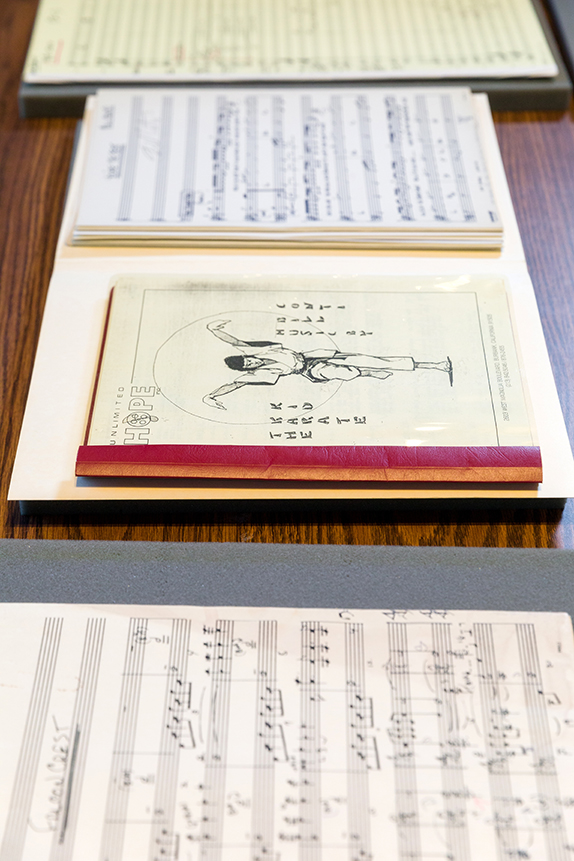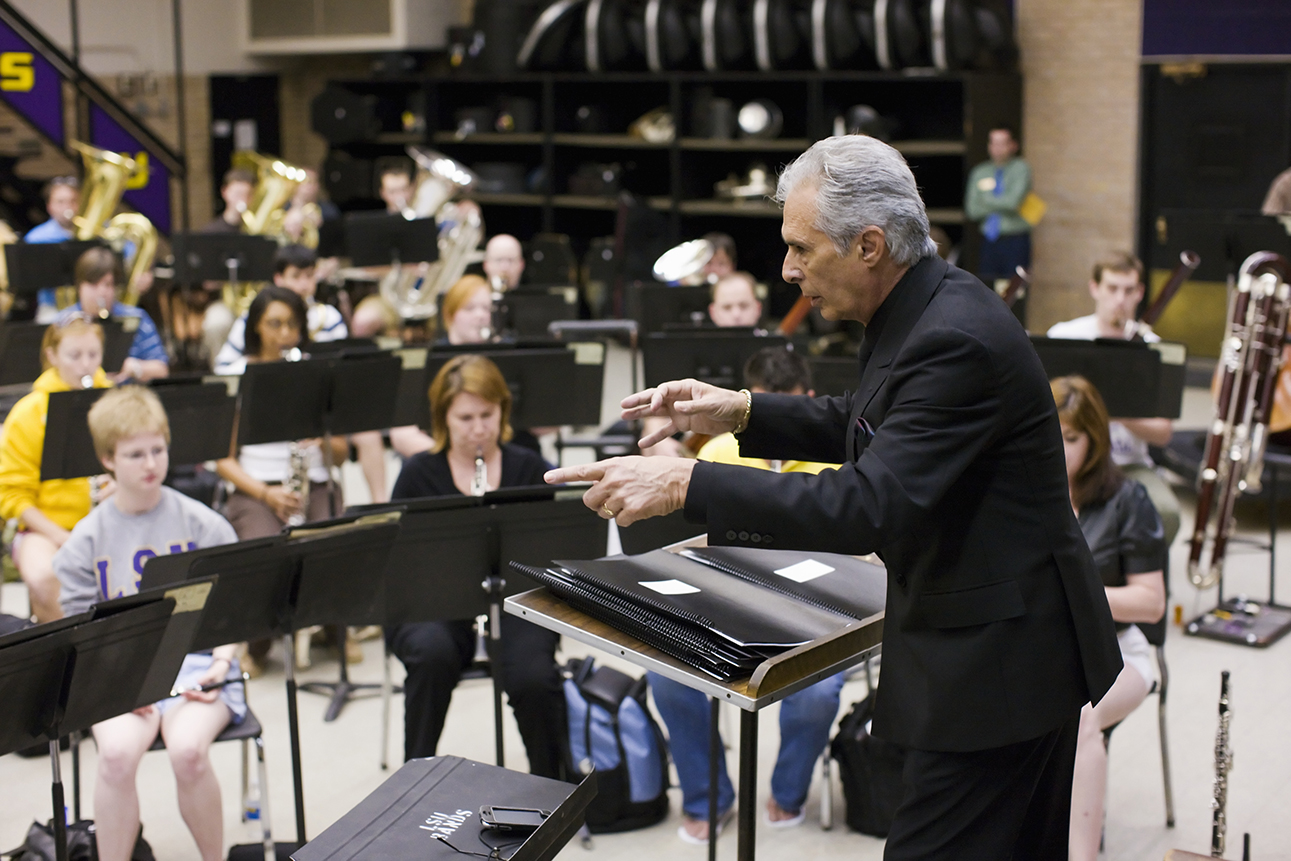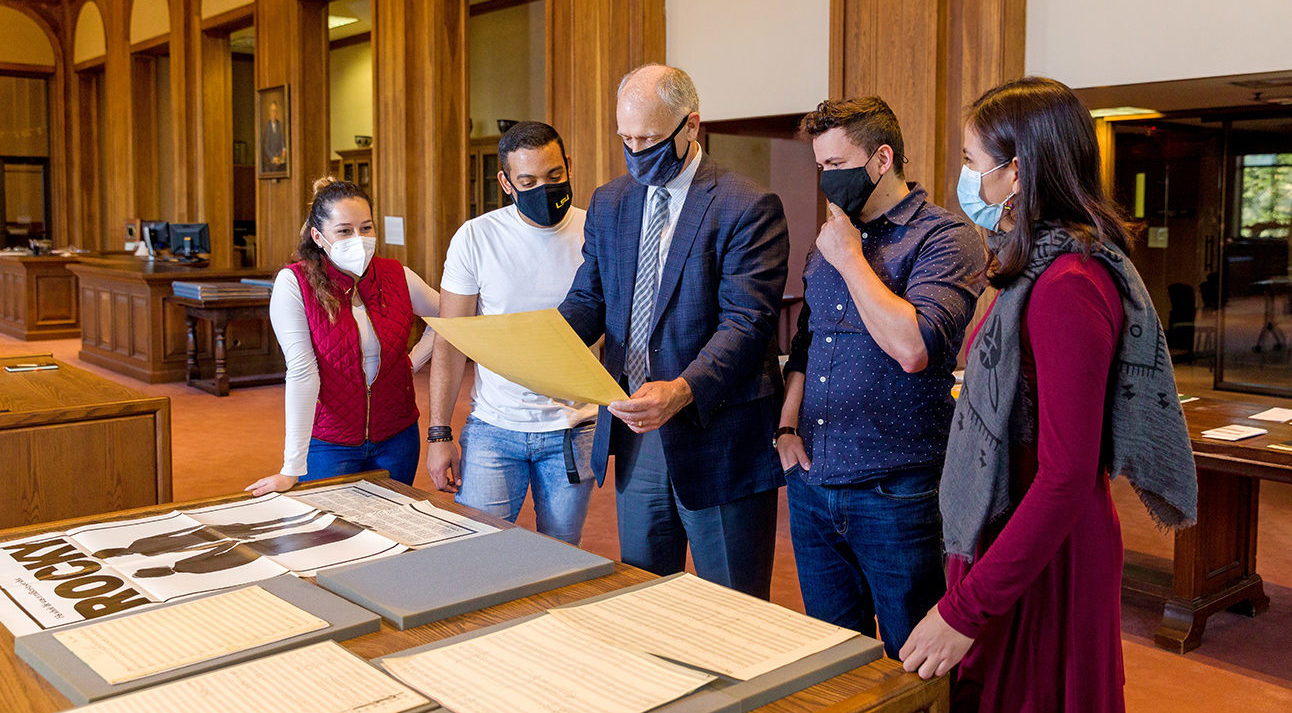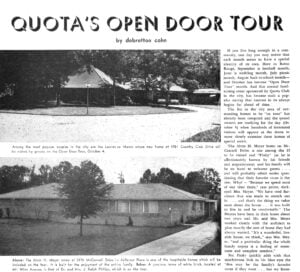Keeping the scores: LSU is the new home of Bill Conti’s original Hollywood music documents
For Oscar and Emmy-Award winning composer and conductor William “Bill” Conti, there was no other institution to which to donate his most famous musical scores but LSU. The new home for this exceptional collection of original film and TV music had to be the place where Conti spent his most formative years as a young musician and student, and where he met his wife Shelby, a former Golden Girl. “It seemed to me that my favorite place in my education was, without a doubt, my four years at LSU,” says Conti, now 78 and living in Los Angeles.
Conti, a 1963 graduate of LSU’s School of Music, is the composer behind some of TV and film’s most well-known musical scores, including those from The Right Stuff, for which he won an Academy Award for Best Original Score, and from the Rocky film series, the Karate Kid film series, the James Bond film For Your Eyes Only and the TV series Dynasty.
And now this collection is available in LSU Libraries’ Special Collections as the William and Shelby Conti Papers. The importance of having such valuable teaching tools in the form of original musical scores is immeasurable, LSU leaders say. “We’re talking about quintessential primary sources here right out of the composer’s hand,” says LSU School of Music Director James Byo. “When you’re looking at the drafts of something before the final product, you’re really able to get inside the mind, in a way, of a composer without the composer actually being there. And make assessments about the methods to one’s madness, the method to Conti’s madness, who ends up being very successful. So, in terms of students learning what the masters have done so that they can copy the same sort of procedures, it’s a great opportunity.”

LSU Associate Professor of Musicology Blake Howe teaches film music courses and uses excerpts from Rocky, which he calls “one of the most iconic pieces of film music of the 20th century,” as part of his curriculum. “Students are really excited, especially during the training sequence where Sylvester Stallone climbs the steps of the Philadelphia Museum of Art,” says Howe. “And then I tell them that the person responsible for this music, this great music, graduated from LSU and was a student just like them. That always inspires students and gets their attention and makes them feel like they too have potential for great musical things in the future.”
Having access to a collection such as Conti’s is unique, Howe says. “One of the difficult things about teaching film music is that so much of the documentation of the production of film music is inaccessible,” says Howe. “It’s in studio archives or it’s in private collections. Now, with this collection, we can go behind the scenes, look at the music, look at the production documents, see how Mr. Conti created a score and see how he was able to perform and record it. So we know now not just what the final sequence looks like, but how it was created.”
LSU Associate Professor of Composition Mara Gibson plans on taking her composition forum students to view Conti’s scores. “There are things that you can see in a score by a composer that you may not see in the final edited copy, like notes, just little things that composers find interesting,” Gibson says.

Conti says he hopes the scores might help a budding musician satisfy a curiosity about the composition process. “There might be someone at LSU that might be interested in movie music,” says Conti, who last visited the campus in 2019. “When a musician hears something, any musician, he’ll go hmm… If you don’t hear it automatically and say ,‘I know how he did that,’ your curiosity goes, ‘How did he do that?’”
Conti’s accomplishments include earning a master’s degree with honors from the Juilliard School of Music and serving a record 19 times as the musical director at the Academy Awards. He has been nominated for three Academy Awards, three Golden Globes and 13 Emmy Awards. He earned five Emmy Awards for Outstanding Musical Direction for Academy Award ceremonies, received an Honorary Doctorate of Music from LSU in 1985, and was inducted into the Louisiana Music Hall of Fame in 2008.
Conti says he was unemotional when some of his most famous life work left his home for LSU. “I didn’t have a feeling one way or the other in that it was leaving,” says Conti. “It lived with me from its beginning and then it left… I don’t interact with it. If it’s a suit you haven’t worn in five years, I don’t know why you’re keeping it, but it might be just because it’s mine and I’m not going to give it to anybody else or I’m not going to let it go.”
When asked if Conti knew the score to Rocky would be a hit, he replies, “Absolutely not. Nobody knows that. Come on. If I was a person that knew that I could do that, then everything I did would be a hit.”
Byo says the William and Shelby Conti Papers mean a great deal to LSU. “It’s affirming in the sense that it’s a really great sign of the commitment and the trust that our alumni have for LSU and for the School of Music,” he says. “The School of Music throughout its history has provided, I think, fertile ground from which musicians of all stripes, composers and performers and teachers have developed careers of high accomplishment. This donation, given his accomplishments—its value is just inestimable.”
This story was originally published in the February 2021 issue of inRegister.










